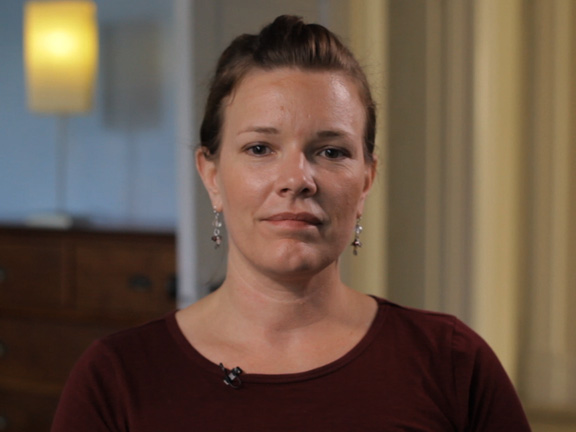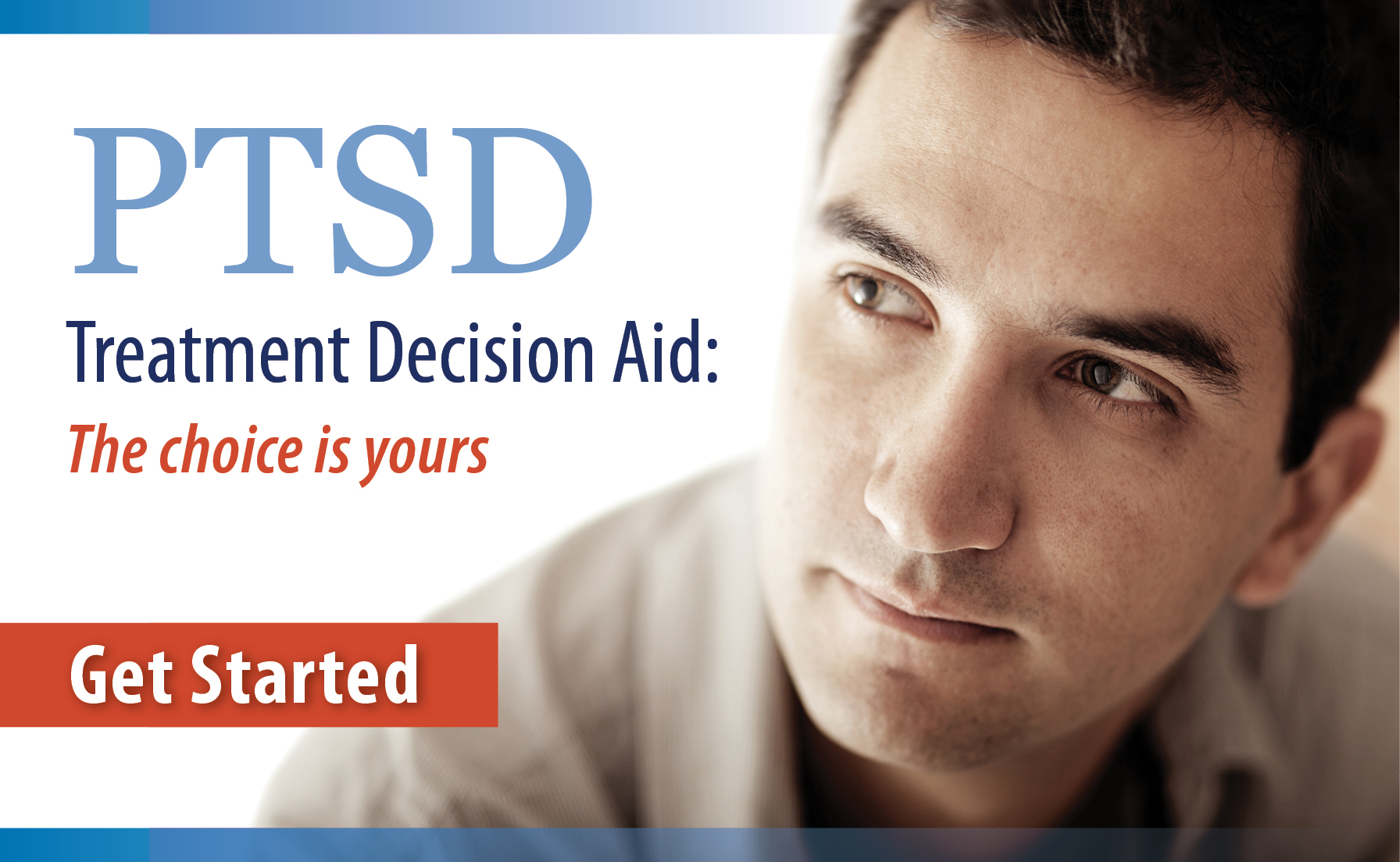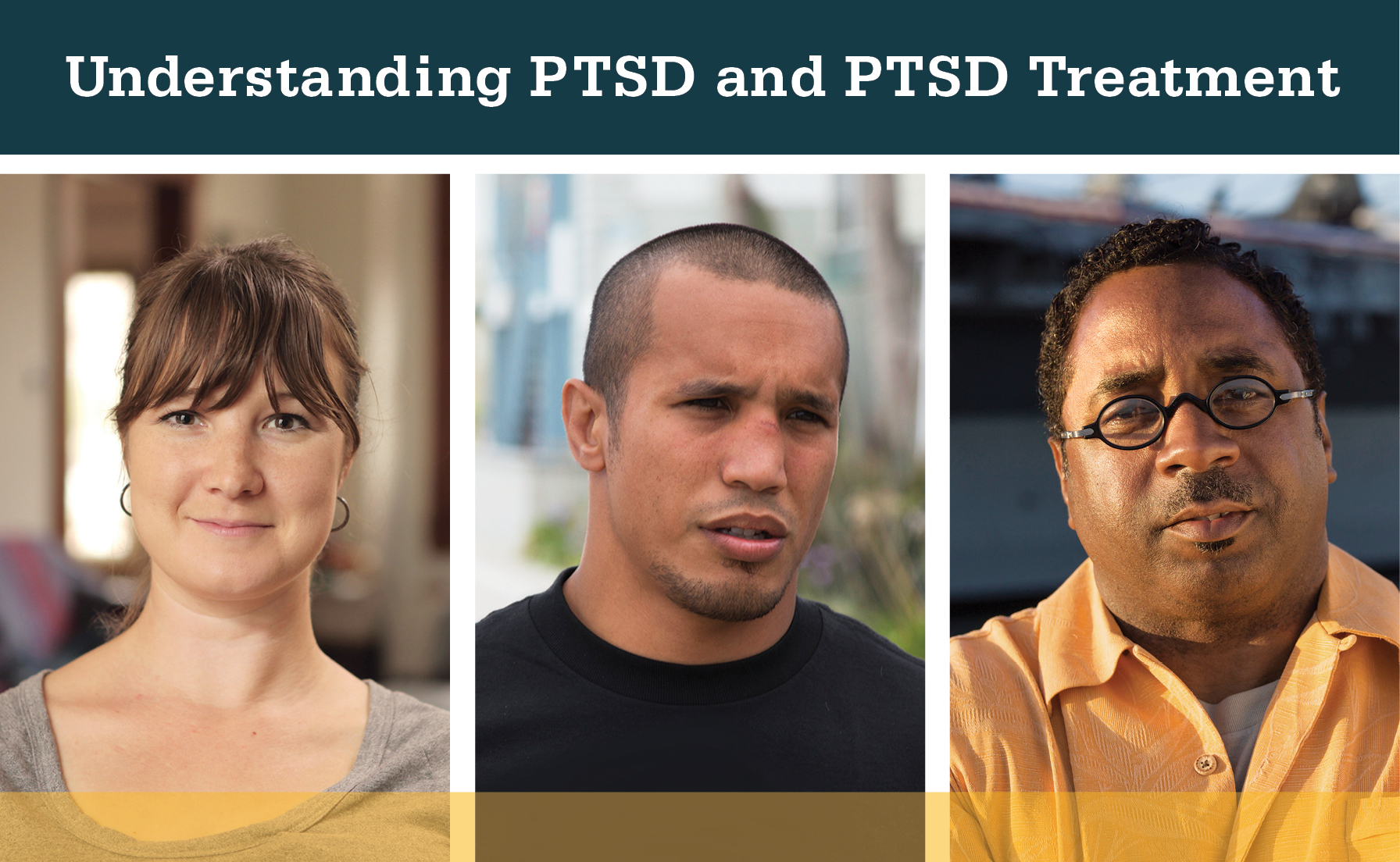Talk Therapy
“It's very important to unlock what caused the PTSD.”
Sarah Humphries
U.S. Army, 1994-2012

Talk Therapy
Available en Español
Several types of trauma-focused psychotherapies (or, talk therapies) are highly recommended for PTSD. "Trauma-focused" means that the therapy focuses on your memory of the traumatic event or what it means to you.
Most of the therapies last about 8 to 16 sessions. Then, if you still have symptoms, you and your therapist can talk about ways to manage them using skills you learned in treatment.
Trauma-Focused Talk Therapies With the Most Support for PTSD
- Cognitive Processing Therapy (CPT)
CPT teaches you how change the upsetting thoughts and feelings you have had since your trauma. - Prolonged Exposure (PE)
PE teaches you to gradually approach trauma-related memories, feelings and situations that you have been avoiding since your trauma. - Eye Movement Desensitization and Reprocessing (EMDR)
EMDR helps you process and make sense of your trauma while paying attention to a back-and-forth movement or sound (like a finger waving side to side, a light, or a tone).
Other Talk Therapies That Are Supported for PTSD
There are other talk therapies that are suggested for PTSD, but these do not have as much research support. Other trauma-focused therapies include:
- Written Exposure Therapy (WET)
WET helps you find new ways to think about your trauma and its meaning through writing assignments you complete during sessions. This is a brief, 5-session therapy. - Cognitive Therapy for PTSD (CT-PTSD)
CT-PTSD helps you learn to change thoughts about your trauma. You will revisit the trauma memory to develop meaning for what happened and change negative thoughts.
Another talk therapy with some research support is non-trauma-focused, meaning that you do not need to focus on your traumatic experience(s):
- Present-Centered Therapy (PCT)
PCT focuses on learning how to deal with current life problems related to your traumatic experience or PTSD symptoms in ways that are adaptive.
Which PTSD Treatment Is Best for You?
No one treatment is right for everyone. Learn about effective treatment options with PTSD Treatment Decision Aid. You can read about different treatments, hear advice from people who have been through these treatments, and watch videos of providers explaining how the treatments work. You can also build a chart to compare the treatments you like the most and print a personalized summary that lists your symptoms, treatment preferences, and questions to share with your provider.
You May Also Be Interested In






























